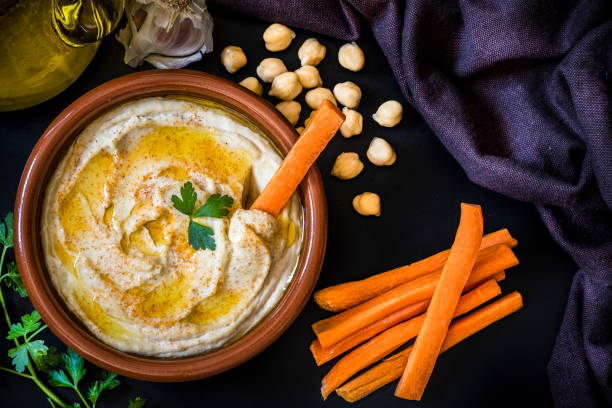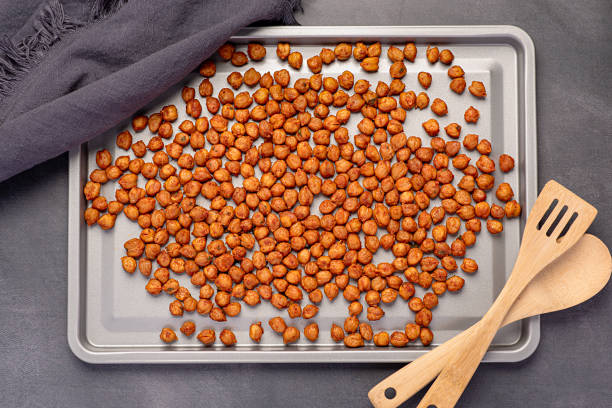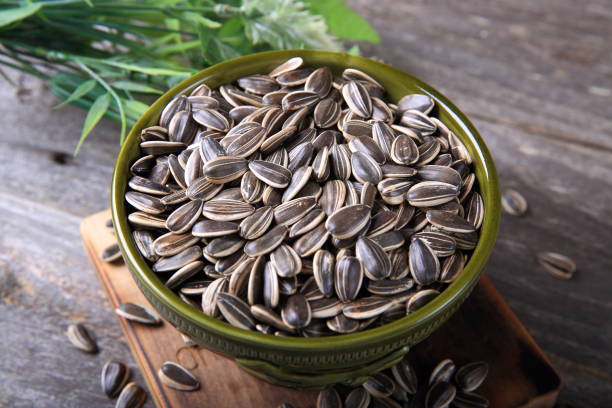Keeping your eyes healthy doesn’t mean giving up tasty snacks. In fact, the right foods can do double duty: they fuel your body with energy, protect your vision from damage, and help you maintain a healthy weight. Think of snacks as more than just something to eat between meals—they can actually be part of your wellness plan. By choosing the right ingredients, you can give your eyes the nutrients they need, like vitamin A, vitamin C, and omega-3 fatty acids, all while enjoying flavors you love.
Many people think of eye health only when something goes wrong, such as blurry vision or dryness. But the truth is, small daily choices—like what you eat—can make a big difference long before problems appear. Snacks rich in antioxidants, healthy fats, and essential vitamins act like fuel for your eyes, keeping them sharp and strong over time.
In this guide, we’ll explore snacks that are good for both your eyes and waistline. You’ll discover which nutrients matter most, learn how to pair foods for maximum benefit, and find simple snacks ideas that fit into your daily routine. With a few smart swaps, you can protect your vision for years to come while enjoying delicious, guilt-free snacks.
Why Eye Health and Diet Go Hand in Hand
Your eyes need certain vitamins, minerals, and antioxidants to stay strong and function at their best. Just like the rest of your body, your eyes depend on proper nutrition every single day. A poor diet filled with processed foods, fried snacks, and sugary drinks can weaken your eye health over time. This increases the risk of common vision problems such as:
- Age-related macular degeneration (AMD) – a leading cause of vision loss in older adults.
- Cataracts – cloudy lenses that make it harder to see clearly.
- Dry eyes – a lack of moisture that causes irritation and discomfort.
- Poor night vision – difficulty seeing in low-light conditions, often linked to vitamin A deficiency.
According to the American Academy of Ophthalmology, nutrients like vitamin A, vitamin C, vitamin E, zinc, and omega-3 fatty acids are especially important for protecting your eyesight. These nutrients act as shields, helping your eyes fight off damage from free radicals, UV rays, and digital screens. The good news is that you don’t need to rely on heavy supplements—choosing the right snacks is one of the simplest and most effective ways to give your eyes these nutrients every day.
Nutrients That Protect Your Vision
Before we dive into snacks ideas, let’s look at the nutrients your eyes love most and why they are so important:
- Vitamin A – Supports the surface of the eye (cornea) and helps prevent night blindness. Without enough vitamin A, your eyes may struggle to adjust to low light.
- Vitamin C – A powerful antioxidant that helps protect against cataracts and strengthens the blood vessels in your eyes. It also supports collagen, which keeps the cornea and other eye tissues healthy.
- Vitamin E – Acts as a shield for eye cells by fighting free radicals. This reduces the risk of age-related eye damage and helps preserve sharp vision.
- Lutein and Zeaxanthin – These antioxidants gather in the retina, where they filter harmful blue light. Found in leafy greens, corn, and eggs, they may reduce the risk of age-related macular degeneration (AMD).
- Zinc – Plays a key role in moving vitamin A from the liver to the retina, where it helps make melanin, the pigment that protects your eyes. Zinc deficiency can lead to poor night vision and higher risk of eye disease.
- Omega-3 fatty acids – Support the retina and reduce symptoms of dry eyes. They also improve the function of the eye’s tear ducts and may protect against AMD.
Each of these nutrients works like a building block for healthy vision. When combined, they help keep your eyes strong, moist, and better protected against everyday stress, whether it comes from sunlight, aging, or screen time.
Now, let’s see which simple and delicious snacks can deliver these powerful nutrients without ruining your diet.
Best Snacks for Eye Health That Won’t Hurt Your Diet
1. Carrot Sticks with Hummus

Carrots are famous for their vitamin A content, which is essential for good vision—especially at night. The bright orange color of carrots comes from beta-carotene, a powerful antioxidant that your body converts into vitamin A. This vitamin helps protect the surface of the eye and supports clear vision in low-light conditions. Eating carrots regularly can also reduce the risk of eye problems like night blindness and dry eyes.
Pairing carrots with hummus makes this snacks even better. Hummus is made from chickpeas, which are rich in protein, fiber, and healthy fats. The protein helps keep you full longer, while the fiber supports healthy digestion. The healthy fats in hummus also help your body absorb beta-carotene more effectively, making this a smart and tasty combination. Together, carrots and hummus create a snacks that is crunchy, creamy, and loaded with nutrients—all while staying low in calories.
Why it works:
- Carrots = beta-carotene (converted to vitamin A for strong vision)
- Hummus = protein, fiber, and healthy fats that boost absorption
2. Almonds and Walnuts
Nuts are packed with vitamin E and omega-3 fatty acids, two powerful nutrients that play a big role in eye health. Vitamin E works as an antioxidant, helping to protect delicate eye cells from oxidative stress, which can lead to age-related damage. Omega-3 fatty acids support the retina and may lower the risk of dry eyes by improving tear production. Eating nuts regularly has also been linked to better overall heart health, which is important since good blood flow helps nourish your eyes.
The best part is you don’t need a large serving. A small handful of almonds, walnuts, or pistachios is enough to give your body these nutrients while also keeping you full between meals. Nuts are calorie-dense, so portion control is key, but they offer a healthy balance of protein, fiber, and fats that make them a smart choice for both your eyes and your diet.
Tip: Stick to unsalted varieties to avoid excess sodium, which can raise blood pressure and harm circulation. Choosing raw or lightly roasted nuts is best for getting the most nutrients without added oils or sugars.
3. Greek Yogurt with Berries
Berries like blueberries, strawberries, and raspberries are rich in vitamin C, one of the most important antioxidants for eye health. Vitamin C helps protect the eyes from free radical damage, supports healthy blood vessels in the retina, and may lower the risk of cataracts as you age. These colorful fruits are also high in fiber, which helps balance blood sugar levels—a bonus for people watching their diet.
Greek yogurt adds another layer of nutrition to this snacks. It is packed with protein, which helps keep you full, and probiotics, which support gut health. A healthy gut can improve nutrient absorption, making it easier for your body to use the vitamins and minerals that protect your vision. The creamy texture of yogurt pairs perfectly with the sweetness of berries, creating a snacks that feels indulgent but is actually very healthy.
Bonus: Probiotics in Greek yogurt may also help reduce inflammation in the body. Since chronic inflammation can damage eye tissue over time, this makes yogurt with berries a powerful snacks for both your eyes and your overall health.
4. Hard-Boiled Eggs
Eggs are one of the best sources of lutein and zeaxanthin, two powerful antioxidants that are stored in the retina. These nutrients act as natural filters, protecting your eyes from harmful blue light that comes from digital screens and sunlight. Studies show that lutein and zeaxanthin may lower the risk of age-related macular degeneration (AMD) and cataracts, making eggs a valuable food for long-term eye health.
In addition to these eye-protecting nutrients, eggs provide high-quality protein, which helps keep you full without adding many calories. They also contain healthy fats that improve the absorption of fat-soluble vitamins like vitamin A, D, and E—nutrients that are all important for vision. Because they are so versatile, eggs can be enjoyed in many ways: hard-boiled, scrambled, or even sliced over salads. This makes them an easy and affordable snacks that supports your eyes while fitting into almost any diet plan.
5. Roasted Chickpeas

A crunchy alternative to chips, roasted chickpeas are not only delicious but also packed with eye-friendly nutrients. They are rich in zinc, a mineral that plays a key role in moving vitamin A from the liver to the retina. This process helps your eyes produce melanin, the protective pigment that shields them from damage. Without enough zinc, you may struggle with poor night vision or a higher risk of age-related eye problems.
In addition to zinc, roasted chickpeas provide plant-based protein and fiber. The protein helps keep you satisfied between meals, while the fiber supports healthy digestion and keeps your energy steady. Unlike greasy chips or processed snacks, roasted chickpeas are low in unhealthy fats and can be seasoned in endless ways—spicy, savory, or even lightly sweet. This makes them a versatile snack that satisfies cravings while supporting both your diet and your vision.
6. Sliced Bell Peppers with Guacamole
Bell peppers are loaded with vitamin C—actually more than an orange per serving. This makes them one of the best vegetables for protecting your eyes against oxidative stress. Vitamin C supports the health of blood vessels in the retina and may lower the risk of cataracts as you age. The bright colors of bell peppers, especially red, yellow, and orange, also mean they are rich in other antioxidants that fight free radical damage. Eating them raw keeps all those nutrients intact while giving you a sweet, crunchy snack.
Pairing bell peppers with guacamole makes this snack even more powerful. Guacamole is packed with heart-healthy fats from avocados, which help your body absorb fat-soluble vitamins like A and E. Vitamin A is essential for clear vision, while vitamin E protects eye cells from damage. Together, the crunch of bell peppers and the creaminess of guacamole create a nutrient-rich, satisfying snack that supports both eye health and weight management.
7. Edamame
These young soybeans, also known as edamame, are a powerhouse of plant-based protein and omega-3 fatty acids. Protein helps keep you full and supports muscle health, while omega-3s play a big role in reducing inflammation and protecting the retina. Eating edamame regularly may also help lower the risk of dry eyes by improving tear quality and keeping the eyes moist.
Edamame is also rich in fiber, which supports digestion and helps control blood sugar levels—an important benefit for people who want to protect their eyes and maintain a healthy diet. They are naturally low in calories but high in nutrients, making them an excellent alternative to processed snacks.
For extra flavor, you can sprinkle edamame with a little sea salt, sesame seeds, or even a dash of chili powder. Whether eaten warm or chilled, this snack is simple, satisfying, and packed with the nutrients your eyes need to stay healthy.
8. Dark Chocolate (in Moderation)
Dark chocolate contains flavonoids, powerful plant compounds that help improve blood flow to the retina and the brain. Better circulation means your eyes receive more oxygen and nutrients, which can support sharper vision and reduce the risk of age-related damage. Some studies suggest that flavonoids may also protect the delicate blood vessels in the eyes, helping maintain overall eye health.
To get the most benefits, choose dark chocolate with at least 70% cocoa. This ensures a higher amount of antioxidants and less added sugar compared to milk chocolate. While dark chocolate can be a healthy treat, it is also calorie-dense, so portion control is important. A small square or two is enough to give your body the benefits without adding too many extra calories.
Enjoying dark chocolate in moderation can make you feel like you’re indulging while still supporting your eyes and sticking to a balanced diet.
9. Apple Slices with Almond Butter
Apples bring fiber and natural sweetness, making them a smart choice for a healthy snack. The fiber helps regulate blood sugar levels, which is important for protecting your eyes over time since spikes in blood sugar can damage the tiny blood vessels in the retina. Apples are also hydrating and low in calories, so they give you a refreshing crunch without weighing down your diet.
Almond butter makes this snack even more powerful by adding vitamin E and healthy fats. Vitamin E acts as an antioxidant, protecting eye cells from oxidative stress, while the healthy fats help your body absorb fat-soluble vitamins like A and D. The combination of protein from the almonds and fiber from the apple also helps keep you full longer, making this a satisfying choice that curbs cravings.
Together, apples and almond butter create a perfect balance of sweet and savory flavors while delivering key nutrients that support both eye health and weight management.
10. Sunflower Seeds

Just one handful of sunflower seeds provides a large dose of vitamin E, an essential antioxidant that helps protect your eyes from age-related damage. Vitamin E works by fighting free radicals—unstable molecules that can harm healthy eye cells and speed up conditions like cataracts or age-related macular degeneration (AMD). Getting enough vitamin E in your diet is a simple way to keep your vision strong as you age.
In addition to vitamin E, sunflower seeds are also rich in selenium, zinc, and healthy fats, all of which play a role in supporting eye health. The healthy fats help your body absorb fat-soluble vitamins, while zinc supports the delivery of vitamin A to the retina. Sunflower seeds are also a good source of plant-based protein, which makes them a satisfying snack that can curb hunger without adding too many calories.
For the best benefits, choose unsalted or lightly salted sunflower seeds to avoid excess sodium. You can enjoy them on their own, sprinkle them over salads, or mix them into yogurt for a crunchy, nutrient-rich topping.
Smart Snacking Tips for Eye Health
Eating snacks that support eye health doesn’t mean you can eat unlimited amounts. Even healthy foods can add extra calories if you’re not careful, so balance is key. By being mindful of how much you eat and what you pair together, you can get the eye-boosting benefits without slowing down your weight goals. Here are some tips to enjoy these snacks without hurting your diet:
- Portion control: Stick to small servings, especially with nuts and seeds. While they are rich in vitamin E and omega-3 fatty acids, they are also calorie-dense. A small handful is usually enough to get the benefits without overdoing it.
- Choose whole foods: Fresh fruits, vegetables, and raw nuts are always better than processed snacks. Whole foods contain fiber, vitamins, and minerals that support eye health and digestion, while processed snacks often bring excess salt, sugar, and unhealthy fats.
- Pair nutrients: Some vitamins, like A, D, E, and K, are fat-soluble, meaning your body absorbs them best when eaten with healthy fats. For example, pairing carrots with hummus or bell peppers with guacamole helps your body make the most of these nutrients.
- Avoid added sugars: Processed snacks with added sugar can cause spikes in blood sugar, leading to inflammation that harms the delicate blood vessels in your eyes. Choosing natural sweetness from fruits like berries or apples is a healthier way to satisfy cravings.
By following these simple tips, you can turn snacking into a habit that not only fuels your body but also protects your vision for years to come.
Foods to Limit for Better Vision
Some snacks can do more harm than good for your eyes, especially when eaten often. These foods may taste good in the moment, but they can increase inflammation, weaken blood vessels, and raise the risk of eye diseases over time. To protect your vision, it’s best to avoid or limit these:
- Sugary drinks and sodas: High in sugar but low in nutrients, these drinks can cause blood sugar spikes that damage the tiny blood vessels in the eyes. Over time, this may raise the risk of diabetic eye problems and poor circulation.
- Deep-fried chips and pastries: Loaded with unhealthy fats and salt, these snacks contribute to weight gain and inflammation. Trans fats in particular can damage cell membranes and reduce blood flow to the retina.
- Highly processed snack bars with artificial ingredients: While they may look healthy, many snack bars are packed with added sugars, refined grains, and preservatives. These ingredients offer little nutritional value and can put stress on your eyes and body.
- Excessive alcohol: Drinking too much alcohol can dehydrate your body and eyes, leading to dryness and irritation. Long-term overuse has also been linked to higher risks of cataracts and optic nerve damage.
Making smart swaps—like choosing water over soda, or nuts over fried chips—can give your eyes the nutrients they need while helping you stay on track with your diet.
Research from Harvard Health shows that diets high in processed foods and sugars increase the risk of inflammation, which can damage the eyes over time.
Lifestyle Habits That Support Eye Health
Snacking smart is just one part of the equation for keeping your eyes healthy. To protect your vision long-term, it’s important to combine good nutrition with healthy lifestyle habits. Here are some simple steps you can take every day:
- Stay hydrated: Drinking enough water is crucial because dehydration can cause dry eyes, irritation, and blurry vision. Aim for at least 6–8 glasses of water daily, and include hydrating foods like cucumbers, watermelon, and oranges.
- Get enough sleep: Your eyes need rest just like the rest of your body. During sleep, your eyes recover from daily stress, repair tissues, and maintain proper moisture. Poor sleep can lead to eye strain, redness, and dark circles.
- Wear sunglasses: Ultraviolet (UV) rays from the sun can damage the cornea and lens over time, increasing the risk of cataracts and other eye conditions. Wearing sunglasses with UV protection helps shield your eyes from harmful rays.
- Take screen breaks: Spending hours in front of computers, tablets, or phones can cause digital eye strain. Follow the 20-20-20 rule: every 20 minutes, look at something 20 feet away for at least 20 seconds. This relaxes the eye muscles and reduces fatigue.
- Exercise regularly: Physical activity improves blood circulation, which delivers more oxygen and nutrients to your eyes. Regular exercise can help prevent age-related vision problems and support overall eye health.
Combining these habits with nutrient-rich snacks creates a strong foundation for maintaining clear, healthy vision for years to come.
Putting It All Together
Eye health isn’t just about yearly checkups or occasional visits to the eye doctor—it’s about the choices you make every single day. The foods you eat play a major role in keeping your vision sharp and preventing age-related damage. By choosing snacks that are rich in key nutrients like vitamins A, C, and E, zinc, lutein, and omega-3 fatty acids, you provide your eyes with the tools they need to stay strong and healthy.
These nutrients work together to fight free radicals, support the retina, improve blood flow, and protect against conditions like cataracts and age-related macular degeneration (AMD). When incorporated into your diet through smart snacking, they not only protect your eyes but also help you maintain steady energy levels, curb cravings, and keep your weight in check. Making small changes—like swapping chips for roasted chickpeas or adding berries to Greek yogurt—can have a big impact over time.
By focusing on nutrient-rich snacks daily, you turn simple eating habits into long-term eye care, giving your vision the protection it deserves without compromising taste or your diet.
Final Thoughts
Snacking doesn’t have to be a guilty pleasure. With the right choices, you can protect your vision, support your overall health, and still enjoy delicious food every day. Choosing nutrient-rich snacks—like carrots with hummus, berries with Greek yogurt, or a small handful of nuts—turns your snack time into an opportunity to nourish your eyes and body.
Healthy snacks provide essential vitamins and minerals, antioxidants, and healthy fats that reduce the risk of eye problems, fight inflammation, and help maintain steady energy levels. They can satisfy cravings without adding excess calories, making it easier to stick to a balanced diet. By thinking of snacks as a way to care for your eyes, rather than just a quick bite, you create a simple habit that pays off over time.
Try this today: swap your chips or candy for one of the snacks above and notice how much better you feel. Your eyes—and your body—will thank you.
👉 Which of these snacks are you excited to try first? Share your favorite healthy eye-friendly snacks in the comments below!

